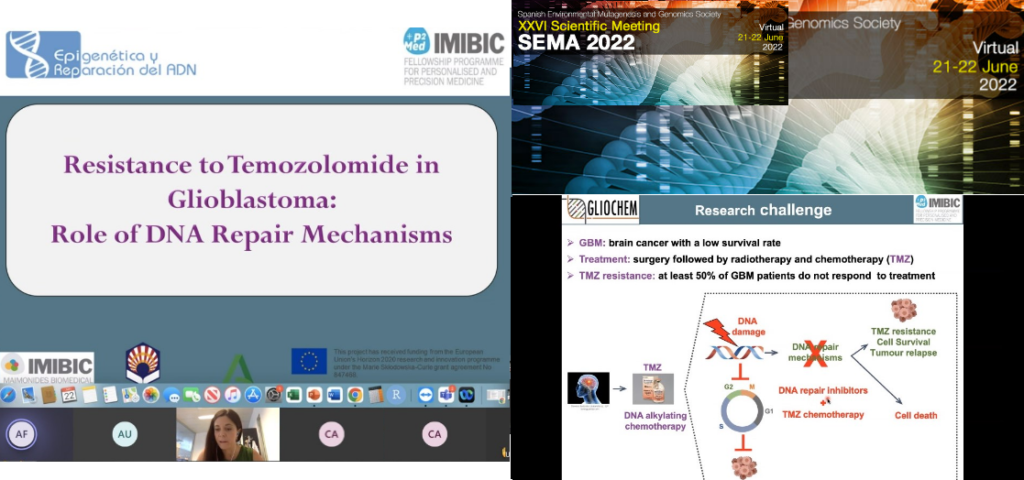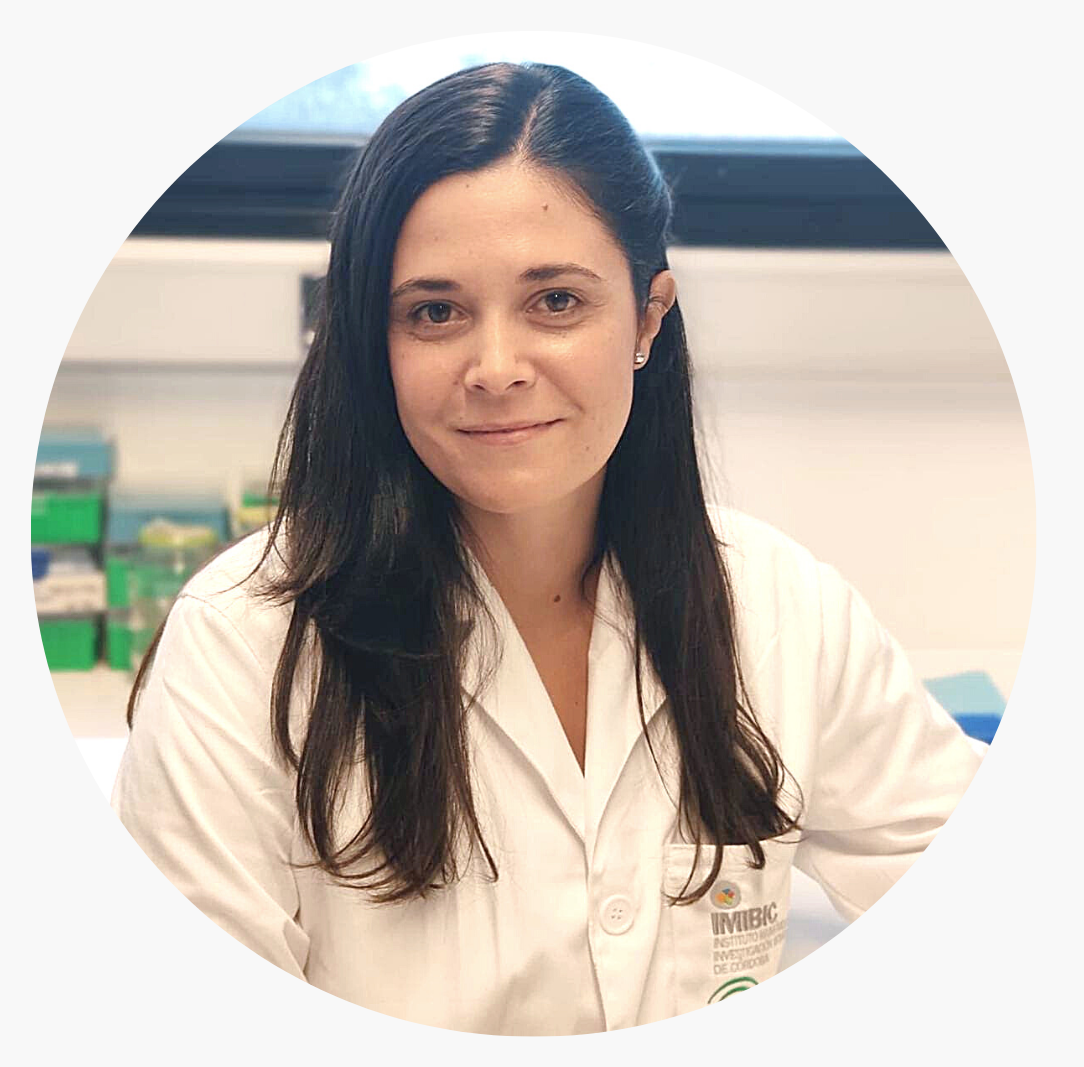 Maribel Martínez Macías (PhD) is a member of the IMIBIC group GC22 Epigenetics, under the supervision of the group leader Prof. Teresa Roldán. Her project is titled GLIOCHEM – Repair of temozolomide-induced DNA damage in tumour cells: role in glioblastoma resistance to chemotherapy. This project aims to generate new knowledge on the molecular mechanisms involved in resistance to temozolomide, a DNA methylating agent used in the treatment of several types of cancer including glioblastoma (brain tumour). Moving towards personalised cancer therapy, the expected results include the identification of new therapeutic targets and predictive biomarkers for methylating anticancer treatment. Maribel’s project will last from January 2021 till December 2023.
Maribel Martínez Macías (PhD) is a member of the IMIBIC group GC22 Epigenetics, under the supervision of the group leader Prof. Teresa Roldán. Her project is titled GLIOCHEM – Repair of temozolomide-induced DNA damage in tumour cells: role in glioblastoma resistance to chemotherapy. This project aims to generate new knowledge on the molecular mechanisms involved in resistance to temozolomide, a DNA methylating agent used in the treatment of several types of cancer including glioblastoma (brain tumour). Moving towards personalised cancer therapy, the expected results include the identification of new therapeutic targets and predictive biomarkers for methylating anticancer treatment. Maribel’s project will last from January 2021 till December 2023.
Objective 1. Analyse the correlation between resistance to TMZ in GBM cell lines and levels of DNA methylation, expression and activity of DNA repair proteins. Objective 2. Examine DNA repair capacity and transcriptional response in TMZ sensitive and resistant GBM cell lines. Objective 3. Study the synthetic lethality of TMZ in combination with topoisomerase I and RNA polymerase I inhibitors.
Dissemination activities
European Researchers’ Night 2023
(Epi)genetic maintenance: how our genes are switched on, switched off, and repaired.
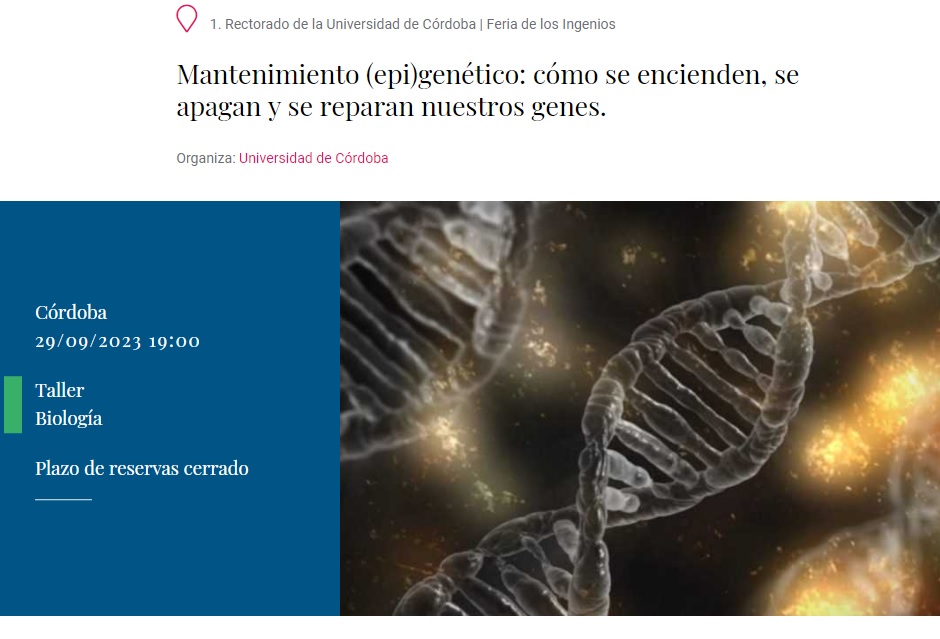 Maribel participated in this workshop at the main event in the University of Cordoba. The researchers explained how DNA labels work and how cells repair damage, and how some diseases like cancer can develop. The team used some hands-on activities and games to show what is DNA, how it functions in different cells, the tools to modify its function and examples of DNA damage.
Maribel participated in this workshop at the main event in the University of Cordoba. The researchers explained how DNA labels work and how cells repair damage, and how some diseases like cancer can develop. The team used some hands-on activities and games to show what is DNA, how it functions in different cells, the tools to modify its function and examples of DNA damage.

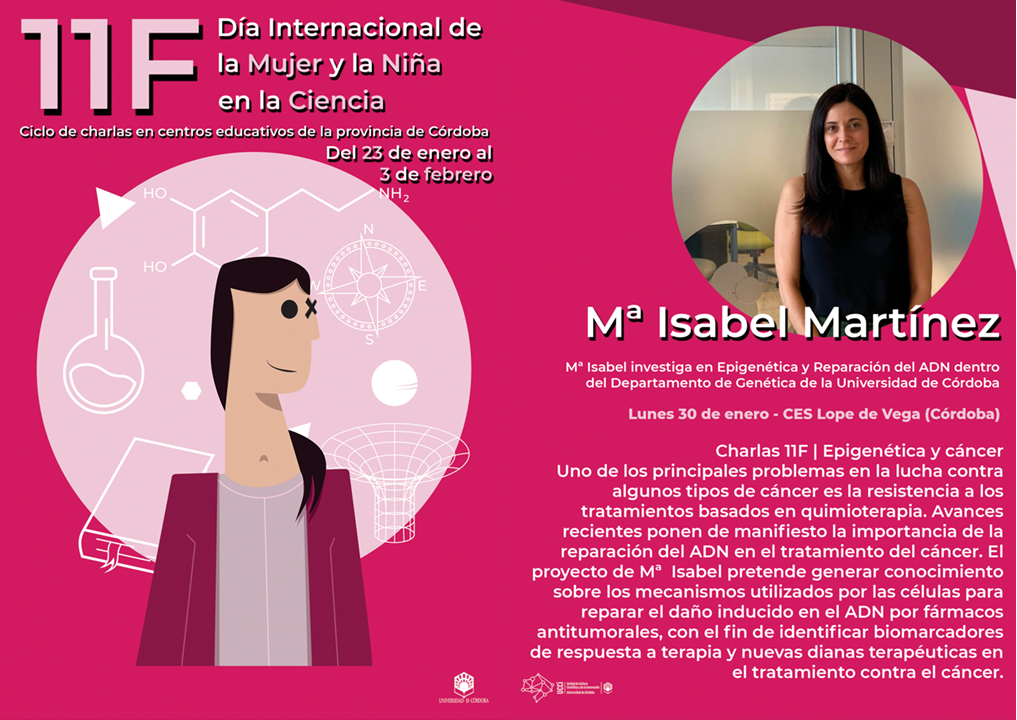 International Day of Women and Girls in Science, 11 February
International Day of Women and Girls in Science, 11 February
The University of Cordoba organised several activities to commemorate this day, to raise awareness of the scientific accomplishments of women in research and to offer girls role models that promote new vocations as scientists. Maribel went to Lope de Vega secondary school to explain the importance of epigenetics and DNA repair in cancer treatment.


European Researchers’ Night 2022
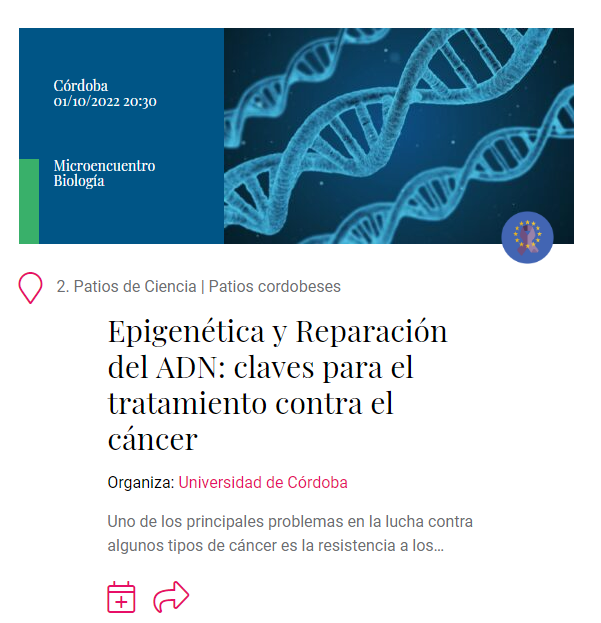 Epigenetics and DNA repair: keys to cancer treatment
Epigenetics and DNA repair: keys to cancer treatment
One of the main problems in the fight against some types of cancer is resistance to chemotherapy-based treatments.
Recent advances highlight the importance of epigenetics and DNA repair in cancer treatment. The aim of this event and discussion between researchers and citizens is to convey the need to generate new knowledge by doing basic research in order to advance in the fight against cancer.
This event has been sold out!

Maribel Martínez and her Supervisor Teresa Roldán visited two local high schools to explain their research of epigenetics and DNA repair as part of the activities of the International Day of Women and Girls in Science. The activity was organised by the Unit of Scientific and innovation Culture of the University of Cordoba (Unidad de Cultura Científica y de la Innovación- UCCi).
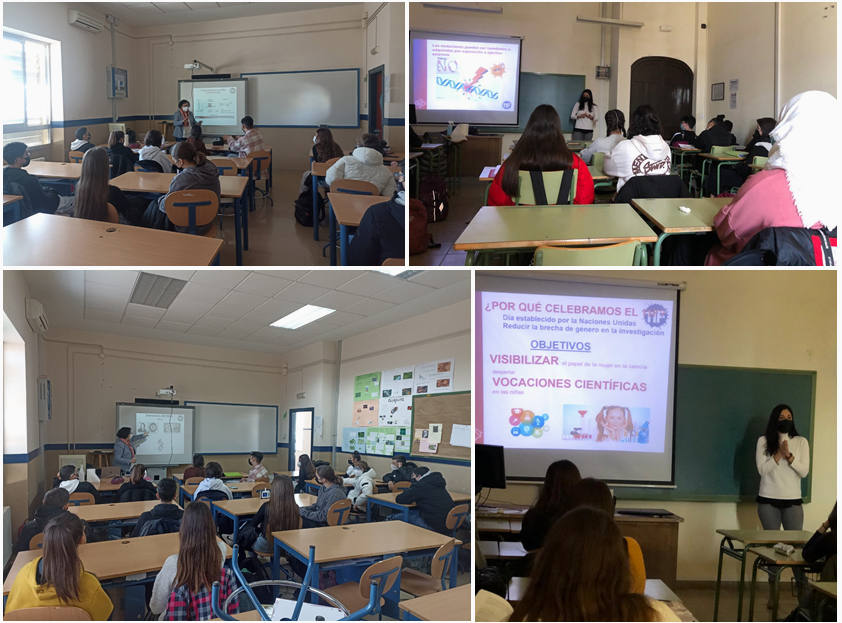

UCO BioResearch Seminars (UCO-BRS) is an Interdisciplinary seminar series where researchers from different departments are invited to give a talk about their work.
Maribel Martínez Macías presented her project on Friday 18th of March, under the title: “DNA damage responses in neurodegeneration and cancer”
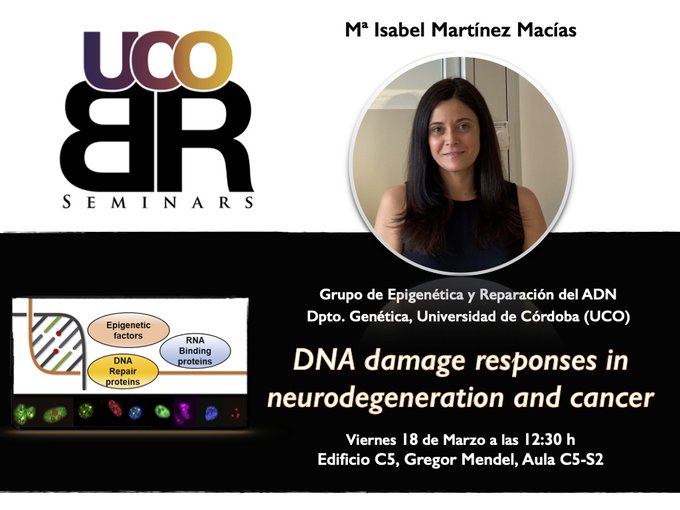

Mª Isabel Martínez’s presented “Resistance to temozolomide in glioblastoma: role of DNA repair mechanisms” at the virtual XXVI SEMA Scientific Meeting on Wednesday 22nd of June 2022.
Spanish Environmental Mutagenesis and Genomics Society (SEMA).
